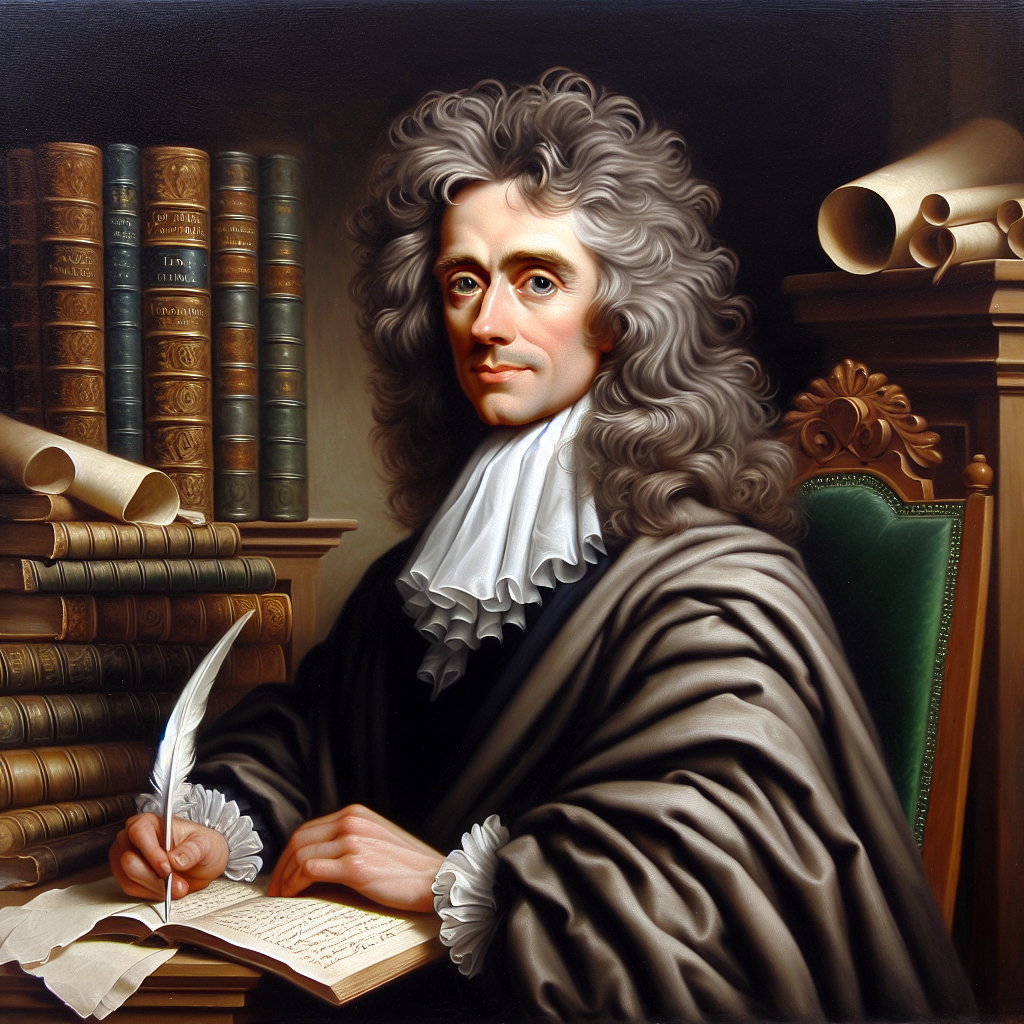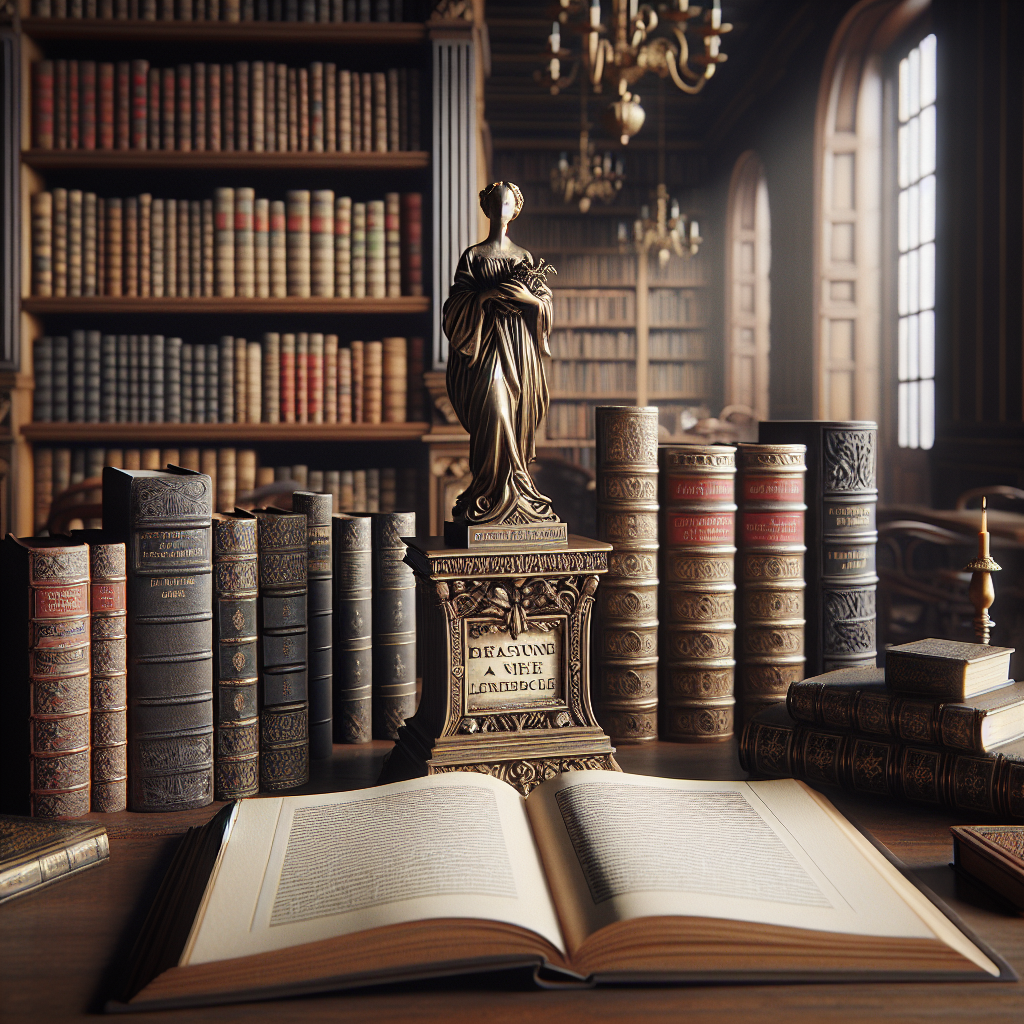Exploring John Milton’s Works
John Milton’s writings have left an enduring mark on literature and continue to captivate readers today. His standout masterpieces, like “Paradise Lost” and “Areopagitica,” are famous for diving into themes of liberty, moral complexities, and what it truly means to be human.
Paradise Lost Overview
Published way back in 1667, “Paradise Lost” spins an epic tale about humanity’s first big oops—the Fall of Man. This poem packs a punch with themes of free will, temptation, and redemption, famous for the line, “The mind is its own place and in itself can make a heaven of hell, a hell of heaven”. It’s a rollercoaster ride through human nature, good, and evil, introducing us to Satan, Adam, and Eve in a way that bends our moral compass.
Key Parts of Paradise Lost
| Part | Details |
|---|---|
| Genre | Epic Poetry |
| Themes | Free Will, Predestination, Fall of Man |
| Influence | Shaped literature, even got a nod from the Founding Fathers (Aeon) |
| Memorable Faces | Satan, Adam, Eve |
Curious for more? Dive into john milton poetry analysis for some juicy insights.
Areopagitica and Free Expression
“Areopagitica,” penned in 1644, is Milton’s mic-drop moment against censorship. This treatise champions free speech and open exchanges of ideas. Its rhetoric and persuasive charm bleed into discussions about freedom rooted in Western thought.
“Areopagitica” bursts onto the scene with big questions about thought and speech still echoing today—even in the digital domain. Its musings fire up champions of free speech and press, highlighting the beauty of individual liberty and open conversation.
Highlights from Areopagitica
| Highlight | Info |
|---|---|
| Core Argument | Champions Free Expression |
| Era Snapshot | Born in political chaos |
| Today’s Gig | Talks censorship and personal freedoms |
For a closer look, hop over to john milton areopagitica to soak in its bigger picture.
Milton’s work is a goldmine for anyone curious about how literature challenges and mingles with politics. Start exploring deeper with john milton life and works.
Themes in Milton’s Works
John Milton was one of those writers who liked to dive headfirst into the big stuff. In his works, you’re not just reading about angels and devils but getting a front-row seat to some epic debates. He’s got thoughts on everything from fate and freedom to who does the dishes — metaphorically, of course. Stick around, and let’s explore what makes Milton tick.
Free Will vs. Predestination
Paradise Lost, Milton’s blockbuster, pits free will against fate like a heavyweight match. It’s a cosmic drama where God sets the stage, knowing the ending but letting the actors choose their roles. Milton, in his divine wisdom, shows a God who’s outside of time — kind of like an eternal referee who lets the players make their own fouls.
Enter the infamous “fortunate fall,” a plot twist that combines free will with destiny’s grip. When Adam and Eve take that bite, they tumble headlong into trouble. Yet, this misstep opens the door for a comeback tale — the Messiah stepping in to clean up the chaos. Even Beelzebub, plotting away, inadvertently achieves the opposite of his monstrous goals, highlighting God’s glory amidst rebellion.
Gender Roles and Equality
Milton’s got some mixed messages on the role of the ladies. Traditional to a T, but he does drop hints that make you think he wasn’t all about keeping women in the shadows. In Paradise Lost, Eve grabs more screen time. She’s more than a mere sidekick, carrying the weight of both newfound independence and traditional burdens.
Eve’s character dances between groundbreaking and caught in a corset of expectations. She’s a rebel and a conformist, stirring conversations that echo in today’s fight for equality and fair play for all. Reading Milton with a modern eye opens up a can of worms about who wears the pants in this universe.
Marriage and Relationships
Milton doesn’t skip the love talk. Adam and Eve? They’re like the first-ever couple’s counseling session — rich with love and power struggles. Through their antics, Milton unwraps themes of partnership and authority, giving us an up-close look at what makes a relationship tick or, in their case, hit a rocky patch.
Sure, Milton drags some biblical baggage in but also waves the flag for love and respect as cornerstones. Watching Adam and Eve navigate bliss and battles gives us a glimpse into the raw messiness that is marriage — a journey of ups, downs, and everything sideways.
By tackling these gnarly themes, readers splash into the deep end of Milton’s genius. For those itching for more Milton magic, grab his books and prepare for an intellectual storm. Exploring the world he’s cooked up can change how you think about literature. Dive into the jumbled beauty of his words and see why they still ring true today.
Impact of John Milton
John Milton wasn’t just a writer; he was a game-changer, shaking up the world of ideas about democracy and free speech. His masterpieces, like Paradise Lost and Areopagitica, still send ripples through time, leaving marks on big moments and big movers.
Influence on Founding Fathers
Let’s be real; Milton’s Paradise Lost (1667) did more than just sit pretty on bookshelves. It’s rumored to be the only book signed by not one, but two bigwig Founding Fathers—Thomas Jefferson and James Madison. This little tidbit? It speaks volumes about how Milton’s ideas steered these pioneers of American democracy.
Jefferson didn’t just casually read Milton; he practically wore out his copy of Areopagitica. In Jefferson’s eyes, Milton had the right idea about individual rights and the ever-important freedom of expression. They were playbooks for liberty as the United States was starting out. Milton’s thoughts and scribbles laid out a lot of the groundwork for the democratic gospel that shaped America.
| Founding Fathers | Connection to Milton |
|---|---|
| Thomas Jefferson | Tapped Milton’s Areopagitica for free speech nuggets |
| James Madison | Proud owner of a Paradise Lost copy |
Contributions to Liberalism
Areopagitica isn’t just a dated pamphlet collecting dust. It’s one of the first cheers for free speech and expression that caught on like wildfire during revolution fever, echoing across Europe and beyond. Folks like John Stuart Mill, who laid it down in On Liberty, were singing Milton’s tune when they talked about free expression building a lively society.
Milton dreamt big. He paved a path for the liberal thought crowd and cheered on those fighting for civil liberties. Areopagitica toured widely, hitting French printing presses, adding to the Age of Enlightenment’s fanfare. Even today, Milton’s work gets airtime in debates about press freedom and personal rights.
Want to dig deeper into Milton’s legacy and thoughts? Check out some of his works here and take a deeper dive into Areopagitica here.
The Life of John Milton
Early Life and Background
John Milton popped into the world on December 9, 1608, right in the hustle and bustle of London. Imagine growing up surrounded by people who loved reading and learning—that was Milton’s crib. His dad was into music composition, and mom was pretty sharp herself with books, giving young John a solid start in arts and the humanities. He spent his school days at St. Paul’s School before heading off to Christ’s College, Cambridge, where he soaked up knowledge like a sponge and got pretty good at putting pen to paper. Want the scoop on his younger days? Check out our bit on john milton early life.
Milton was a bit of a rebel with a notebook, always questioning the status quo. His thirst for wisdom didn’t just fill up his books; it left a mark on literature that’s been echoed through the years.
| Key Fact | Detail |
|---|---|
| Birth Date | December 9, 1608 |
| Birthplace | London, England |
| Education | St. Paul’s School, Christ’s College, Cambridge |
Political Activism and Beliefs
Milton wasn’t just weaving words—he was also making some serious noise in the political scene. He used his writing to challenge England’s leadership, speaking up for human rights through stacks of pamphlets (SparkNotes). He didn’t shy away from controversial topics, pushing for the disbandment of all church establishments, whether Anglican, Catholic, or Presbyterian (SparkNotes). If you’re itching for a deep dive into his thoughts on free speech, you can explore Areopagitica here.
Milton also tackled tricky issues like gender and marriage. On one hand, he stuck to the time’s male-dominated hierarchy, but on the other, he painted Eve in Paradise Lost as more of a partner than just an extra (SparkNotes). He even stirred the pot with his ideas on marriage, suggesting okay-ness for divorce beyond just cheating—talk about shaking things up back then. Want to get lost in his literary world? Swing by our piece on john milton literary works.
Milton’s whirlwind of ideas and writings aimed for better political and societal systems, and even now, folks look up to his work for sparking conversations about freedom and rights.

